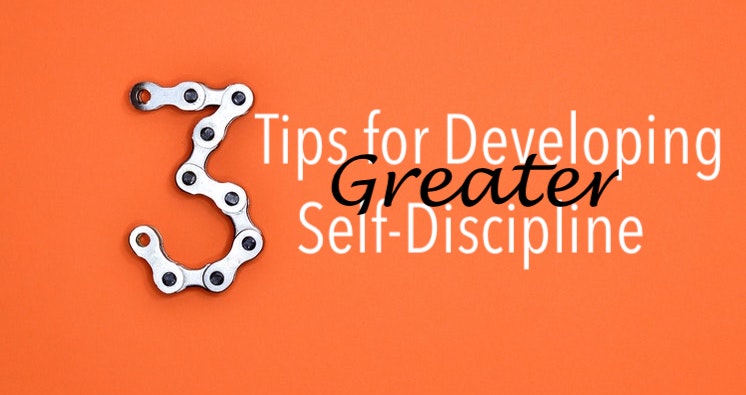
Last week we began considering how closely linked are the virtues of Self-Control and Self-Discipline. A very simple explanation of the two is that Self-Control is about controlling reactions and keeping urges in check, while Self-Discipline is about persevering and maintaining positive habits.
So how are reactions and habits connected?
As I noted in my last article, Self-Control is of course a function of the Brain, and our brains are scientifically proven to be greatly affected by the quality and amount of sleep, nutrition, and exercise we get.
Those three elements—sleep, nutrition, and exercise—are very reliant on our personal habits, which in turn depend greatly on our level of Self-Discipline.
So, in order to maintain good Self-Control (of our reactions and urges), we need to develop the Self-Discipline to keep our bodies (and thus our brains) healthy and equipped to handle what comes our way. Jeff Haden, contributing editor at inc.com, explains:
“The prefrontal cortex (that section of the brain right behind your forehead) is the part that helps us with things like decision-making and regulating our behavior. Self-control, or willpower, falls under this heading, and thus is taken care of in this part of the brain. To be effective at controlling our urges and making sound decisions, the prefrontal cortex needs to be looked after. That means feeding it with good-quality food so it has enough energy to do its job and getting enough sleep.”
So of course, we all already know that we should take care of our bodies and brains by getting enough sleep, eating well, and exercising regularly, but like so many things in life, developing those habits is a lot easier said than done!
No matter what kind of self-discipline we want to work on, we must start somewhere. So here are a few simple tips to get you started:
- Set 3 high-priority daily goals. This idea comes from one of my colleagues. She has a list of 9 daily goals, which are evenly divided into 3 categories (her categories are Self, Family, and Work). For each category she has selected 1 highest-priority goal. While her ideal is to achieve all 9 goals each day, if her day is not going as planned, she at least does her best to hit the top 3!
- Organize your schedule. Take an honest look at your daily schedule and how the hours of your day typically slide by. Then make a few small but intentional tweaks in order to accommodate the 3 high-priority goals you have set for yourself. For example, if one of your goals is to get at least 7 hours of sleep every night, see if you can adjust your evening routine to allow yourself to wind down and go to sleep by a set time each night.
- Reward yourself. Being disciplined is hard work. So when you successfully stick with your plan, let yourself have a (reasonable) reward. Maybe for you that looks like treating yourself to a latte on the days you complete a workout. Or it could be watching a show on Netflix or letting yourself scroll through Facebook for awhile after spending an hour on a certain project you need to get done. Whatever it is, make a plan, stick to it, and then enjoy your reward!
What tips would you add to this list? Share the strategies that have worked for you!


